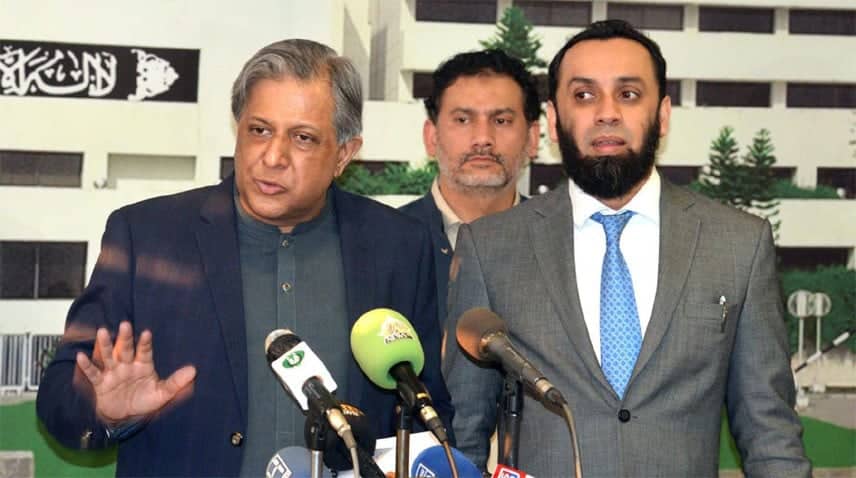ISLAMABAD – After controversies and delays, the Senate on Sunday finally passed the 26th Constitutional Amendment Bill with two-thirds majority.
Federal Minister for Law Azam Nazeer Tarar presented the 26th constitutional amendment in the Upper House and subsequently moved a motion for its approval, which was passed with a two-thirds majority in the House, with 65 members voting in favor of the amendment, while four members opposed it.
Pakistan Tehreek-e-Insaf (PTI) and the Majlis Wahdat-e-Muslimeen (MWM) members did not participate in the voting and left the House.
The Senate session, chaired by Chairman Yousaf Raza Gilani, began with the recitation of the Holy Quran. Leader of the House Ishaq Dar moved a motion to suspend the question hour and routine proceedings, which was unanimously approved.
In his speech, Law Minister Azam Nazeer Tarar said that a committee was formed on the speaker’s direction to review the constitutional amendment bill, and it was thoroughly examined. The bill has been included in the supplementary agenda, so it should be taken up.
Azam Nazeer Tarar presented the motion for the 26th Constitutional Amendment, which was unanimously passed. He then explained that the procedure for appointing judges was introduced in the 18th Constitutional Amendment to ensure transparency in the appointment of judges to the higher judiciary, and a parliamentary committee was formed for this purpose.
He added that the parliamentary committee was given the authority to block any nomination. A petition was filed in the Supreme Court regarding this, and the 19th Amendment was hastily introduced, changing the composition of the commission, resulting in members leaning toward a particular institution.
The Law Minister mentioned that bar councils expressed concerns about the appointment process of higher judiciary judges, and the Supreme Court Bar Association demanded an amendment to Article 175/3 of the Constitution.
Azam Nazeer Tarar proposed that the Judicial Commission should be headed by Supreme Court judges and include four members of Parliament. It was suggested that the Chief Justice, along with judges from the constitutional court, be part of the commission.
The Federal Minister for Law stated that the authority to form constitutional benches will rest with the Judicial Commission, which will include the Chief Justice and four senior Supreme Court judges, as well as members of Parliament.
He also highlighted that the 18th Amendment was passed with broad consensus, and the cabinet has decided to vote in favor of JUI-F’s amendments.
Additionally, he mentioned that the Speaker of the National Assembly would propose a non-Muslim representative.
At the request of JUI’s Maulana Atta Rehman, a prayer break was observed during the Senate session.Pakistan Tehreek-e-Insaf (PTI) Senator Ali Zafar, while announcing his decision not to be part of the 26th Constitutional Amendment, stated that the way this amendment is being carried out, in his view, is a crime.
Speaking in the Senate, PTI’s parliamentary leader Ali Zafar said that the Constitution unites people, not divides them. If there is no consensus on the Constitution, it dies. The nation did not agree on the 1956 Constitution, nor on the 1962 Constitution, both of which died on their own.
He further mentioned that two governments have fallen victim to Article 58 of the Constitution. He explained that his colleagues did not attend due to fear of arrest, and the process of forcing people to vote for the constitutional amendment without their consent is a violation of both the Constitution and democracy.

